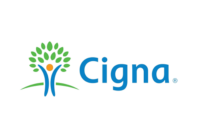Our Curriculum
Group & Family Therapy
When receiving addiction treatment, it’s important to heal the damage to your body and mind that substance abuse has caused. One tool that you can use to help do this is group therapy for substance abuse.
Group therapy is an essential part of addiction treatment. This is because it provides addicts with therapeutic benefits that individual therapy cannot provide. For example, group counseling for substance abuse provides a new layer of introspection and self-discovery. Socializing and comparing their innermost issues with others can help them overcome similar issues.
To help you further understand why group therapy for drug addiction is so effective, we’re going to break down the different types, categories, and stages of group therapy for you. In this article, we’ll also discuss some of the key, specific benefits of group therapy for substance abuse.
What is Group Counseling for Substance Abuse?
Group therapy for substance abuse is therapy between a therapist and two or more patients that suffer from addiction. The goal of group therapy is to help reduce the behaviors and symptoms that contribute to addiction. Group therapy for drug addiction accomplishes its goal by allowing addicts to learn from the addiction-related mistakes and triumphs of others.
Also, group therapy for substance abuse is useful for recovering individuals because it provides them with a support group. To make matters better, all of the members within group therapy for addiction can actually empathize with one another’s struggles. As a result, all of the addicts within group therapy can lean on one another for support.
Types of Group Counseling Mental Health & Addiction
There are five major types of group therapy. These five types of group therapy include psycho-educational group therapy, skill development group therapy, cognitive-behavioral group therapy, support group therapy, and interpersonal process group therapy.
Psycho-Education Groups
Psycho-educational group therapy educates patients on how substance abuse can affect their mental health. This type of group therapy also educates patients on how their negative behaviors are related to their addictions. The consequences that these behaviors can have on the lives of these patients are also addressed.
Since psycho-educational group therapy is educational in nature, it often operates in a classroom-like setting. As a result, this form of therapy helps addicts learn how their substance abuse negatively impacts their lives. Psycho-educational group therapy also teaches addicts methods that they can use to help them overcome their addictions. That way they can maintain a healthy and sober life.
Skill Development Groups
Skill development group therapy educates patients in a way that is specific to their individual life needs. As a result, skill development group therapy for substance abuse makes its patients practice skills that they need to maintain sobriety. To practice these skills, the patients within a skill development group therapy session are expected to interact and learn from one another.
Some common skills that are practiced in skill development group therapy for substance abuse include handling triggers that make you want to use substances, communicating with others in a positive manner, anger management, parenting skills, and financial management.
Cognitive Behavioral Groups
The goal of cognitive-behavioral group therapy is to change the negative thoughts, feelings, and behaviors that patients contain that contribute to their substance abuse habits. These negative thoughts, feelings, and behaviors in this form of therapy get turned into positive thoughts, feelings, and behaviors. Cognitive-behavioral group therapy does this by having its patients learn new ways of thinking and behaving. This form of therapy also provides its patients with relapse prevention training.
Support Groups
The goal of support group therapy is to provide a source of support for each patient. This is done by having each patient engage with one another while the therapist is guiding the type of engagement that occurs in the therapy session. By engaging in group discussions, patients of support group therapy for drug addiction can help one another come up with resolutions for any addiction-related obstacles that come up in their lives.
Interpersonal Process Group Counseling
Interpersonal process group therapy focuses on resolving any negative psychodynamics that patients exhibit. The term psychodynamics refers to the way that individuals psychologically function.
The therapist in this form of group therapy observes how each interpersonal process group therapy participant thinks, feels, and operates while interacting with the group along with how the group functions as a whole.
Also, the counselor will determine what emotional development issues need to be addressed in the group therapy to improve each patient’s sense of judgment. The leader of the interpersonal process group therapy spends most of his or her time observing the patients.
Types of Group Sessions
All the different types of group therapy for drug addiction fall into one of two categories. These two categories are fixed membership groups and revolving membership groups.
Fixed Membership Groups
A fixed membership group therapy for drug addiction contains the same people and number of-858 members throughout the group’s therapy sessions. This means that new people cannot join once the group has already begun their therapy sessions.
Fixed membership therapy groups usually have around 15 or fewer members in them. This category of group therapy also tends to have members who are all at similar points in their recovery journey.
Revolving Membership Groups
A revolving membership therapy group is one that allows people to join or leave the group at any time. As a result, the faces and number of members in a revolving membership therapy group are always changing.
Stages of Group Counseling
There are three general stages that all forms of group therapy go through. These three stages are the beginning phase, the middle phase, and the ending phase.
Beginning Phase
The beginning phase of group therapy for drug addiction is all about learning the rules of group therapy. The beginning phase of group therapy is also when you get to acclimate yourself to the group therapy process.
Middle Phase
The middle phase of group therapy is when the true therapy begins. This is the phase of therapy that addresses triggers for substance abuse. It modifies behaviors and teaches coping skills.
Ending Phase
This is the phase of group therapy for substance abuse in which your group therapy sessions will come to an end. During this phase of group therapy, you can address any lingering anxieties or issues that you have that pertain to your addiction recovery journey. You should also use the time during this phase of group therapy to acknowledge everything that you’ve accomplished.
Benefits of Group Counseling
There are countless benefits of group therapy for addiction. These benefits vary from the ability to gain information to the therapeutic tools that will help you maintain sobriety long-term.
Education
One of the major key benefits of group therapy is education. Part of the reason why many people start abusing substances or relapse after becoming sober from the use of substances is that they don’t understand the severity of the negative effects that abusing substances has on their physical and mental health. Through educational resources like psychoeducational group therapy, such addicts will learn the effects that drug use has had on their health.
Other types of group therapy, such as skills development group therapy or cognitive-behavioral group therapy, can also educate addicts. For example, through skills development group therapy, addicts will learn life skills that they need to know to function as sober individuals in society.
Cognitive-behavioral group therapy, on the other hand, teaches its patients how to change their negative thoughts, feelings, and behaviors into positive ones. Regardless of the type of group therapy that you receive education through, education will only benefit your addiction recovery journey.
Support
Another major benefit of group counseling for substance abuse is the support that it provides its members. This support comes from fellow members within a therapy group. This is partly due to the fact that all the members within a group therapy for substance abuse can empathize with the struggles that one another has with addiction. As a result, members of group counseling can support one another and help each other grow.
Therapeutic Tools and Coping Mechanisms
Some types of group therapy provide patients with therapeutic tools and coping mechanisms that they can use to maintain sobriety. For example, group therapy can teach you how to control your emotions. This skill will help you to avoid using drugs when you feel overcome by your emotions.
Another therapeutic tool that you gain from group counseling for substance abuse that benefits your sobriety is the ability to manage your substance use triggers. By learning how to manage your triggers, you’ll minimize the chances that you’ll fall into temptation and use drugs again.
Group Counseling vs. Individual Counseling
The number of participants in group therapy for substance abuse is greater than the number of participants in individual therapy. This is because individual therapy is one-on-one. Thus, the only people involved in an individual therapy session for substance abuse are the therapist and one client.
Group therapy, on the other hand, occurs between a therapist and two or more clients. As a result, the dynamic between the therapist and the patients within group therapy sessions often varies. The level of involvement that a counselor has within a group therapy session for substance abuse primarily depends on the type of group therapy.
Find Freedom From Addiction with Tulua Health
At Tulua Health, we are known for embracing mental health in addiction treatment. Therefore, we provide our patients with the highest quality individual and group therapy for substance abuse. To learn more about our treatment facility and the many different ways that we incorporate mental health into our addiction treatment, contact us today. We look forward to sharing our results and experience with you.
Safe, Nurturing, Healing
Tulua Health is More Than a Recovery Center
Safety and support form the cornerstone of recovery at Tulua Health. We offer a nurturing environment that extends beyond treatment. Our facilities boast modern amenities, ensuring privacy, comfort, and a range of supportive programs. Here, every aspect of our sober living homes is designed to provide you with a sanctuary that you can proudly call home.

Beyond Traditional Methodology
A Novel Perspective on Recovery
We challenge conventional mental health care.
By addressing mental health trauma first, we find that substance abuse issues naturally begin to resolve. The staff at Tulua Health is skilled at guiding individuals towards a better life, providing patient and opportunity-rich treatment tailored to your needs.
We Accept Many Health Plans





It Starts here
Get a Free Health Coverage Verification
Wellness doesn't just happen. Our team of behavioral health specialists can help find the plan that is right for you. If you're ready for a new start, click below to submit a free health insurance verification request.



